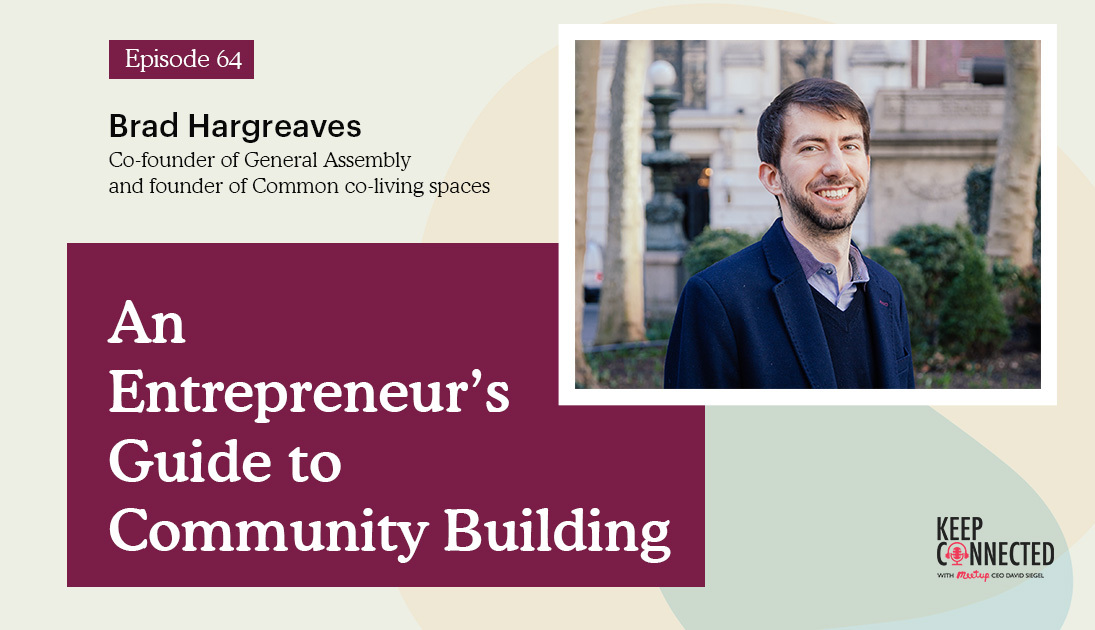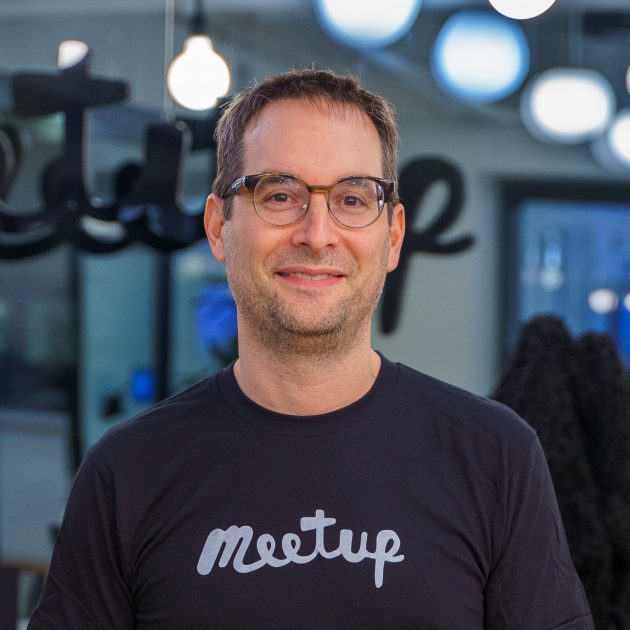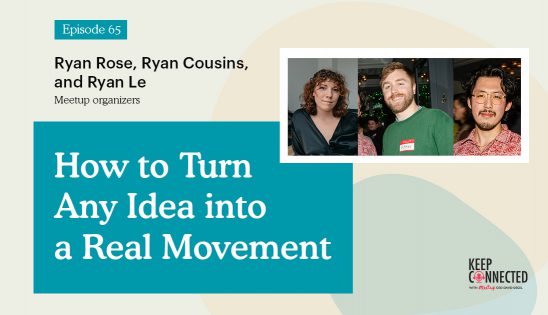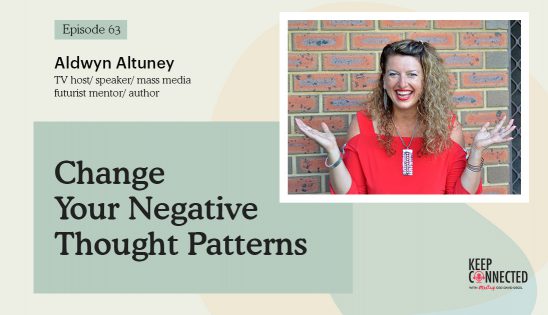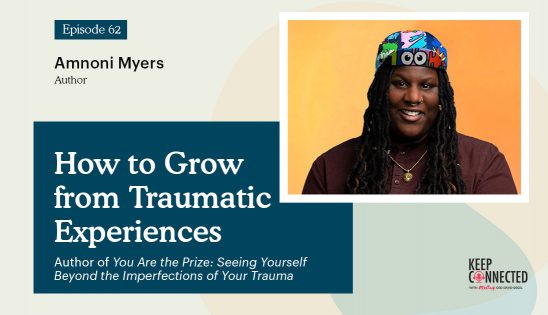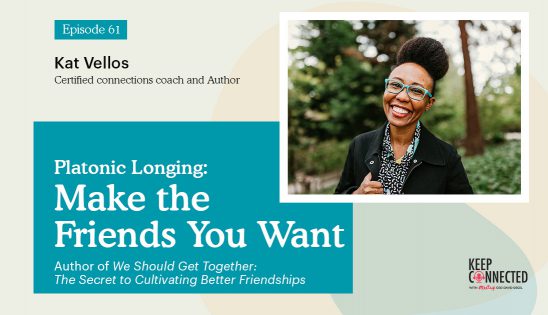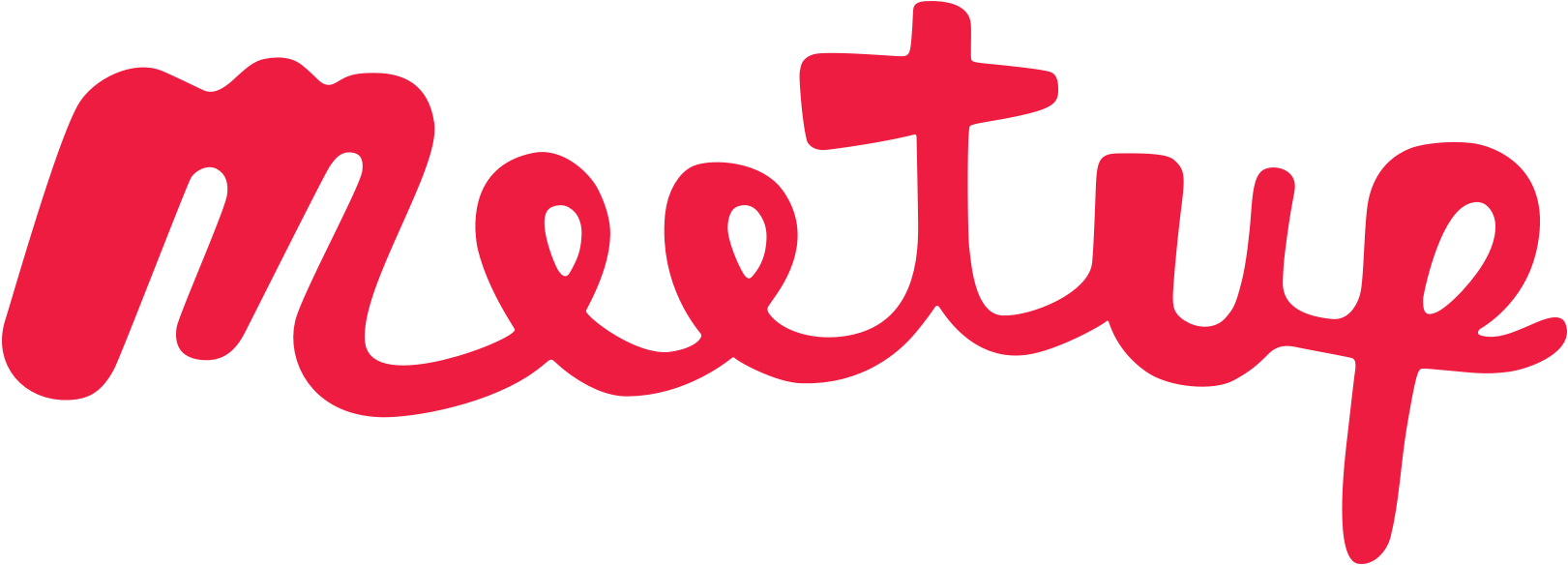Before he was a co-founder of General Assembly and founder of Common co-living spaces, Brad Hargreaves was a Meetup organizer hosting tech events in New York. In this conversation with David Siegel, a legendary entrepreneur talks about how he’s made community building an essential part of his business strategy. Learn how the right community can help you make a major change in your life, whether it’s a long-distance move or a career change.
Show Notes
In this episode, we have Brad Hargreaves, the Founder of General Assembly and the Founder and Chairman of Common. If you are looking for advice on career transitions or information on building community, this is the episode for you to learn not only the common answers but the uncommon ones. Happy reading.
—
Brad Hargreaves, welcome to the show.
Thank you so much for having me. I’m excited to be here.
Everyone should understand Brad knows a lot about keeping people connected. He is the Founder and Chairman of Common, which is all about connecting individuals in their living spaces. He’s the Founder of General Assembly, which is all about building community, building connections and helping people around their career transformations. I find it amazing, first of all, that you are willing to punish yourself by not just being a founder once but being a founder multiple times. Are you founding for punishment?
I don’t know what else to do. It’s the only thing I know so I keep doing it. There would probably be easier ways to live my life but I love it. I have fun and hopefully, do some good for people in the process.
After General Assembly, which is in 20 cities and 35,000 graduates, we’re going to talk a lot about that and Common up to 10,000 beds, are you working on the potential next idea?
I brought on a great CEO to run Common day-to-day. I’ve been building it for a couple of years. An incredible woman named Karlene Holloman has spent decades building and managing hospitality operating companies. I am out of day-to-day at Common and I’m taking some time off for the first time in my working career, which has been nice.
What does a day in the life of an incredibly successful entrepreneur who doesn’t have to work ever again if he doesn’t want to look like? Are you getting off the couch?
My kids mandate that I get off the couch. I’ve got two young kids. I take them to school every morning and pick them up every day. I’ve been doing a lot of writing. I started a newsletter called Thesis Driven, which is focused on innovation in the built environment. I’m going deep into new real estate trends and topics that are emerging by profiling people that are building new things, aligned with those trends. I’ve had a lot of time to write which has been nice and catch up with a bunch of people. It’s been nice to take some time off.
Is there a meaningful feedback mechanism for your writing? Meaning a lot of times, you could write and people read it and that’s wonderful but it’s even better when you write and then you get feedback back. For me, I need that incentive to keep going on and writing more, to hear whether it is helping me play or not.
I do it on Substack and something Substack does. Certainly, Twitter does very well where I promote a lot and push the articles out. It enables people to comment and say, “This is spot on. This was helpful,” or, “You’re an idiot. You didn’t think about X, Y and Z.” I get both of those. Going back to this idea of community that we’re talking about, it’s a very different type of community than one I’ve ever fostered before. You see the same people engaging with what I’m putting out on Twitter. For instance, there are these little sub-communities and groups of people who advocate for housing policy reform that I support.
There are groups of real estate developers. You don’t think about real estate developers having a community but there’s a tight community of real estate developers on Twitter. It’s been fascinating to see the growth of these little sub-communities doing very specific things. Meetup was and is great at fostering that and then you see online channels like Twitter taking that nation worldwide. Through those, I do end up with a lot of feedback. Sometimes, more than I want on my plate.
Let’s talk about the first major community that you helped to build when you started General Assembly. We’ll start talking about that, Common and all the other things that you’re doing. General Assembly, why did you start it initially? How did that company evolve? We’ll then get to what role community played and what learnings people are going to have as well. Why’d you start General Assembly?
To start, I was one of a couple of cofounders of it. It was four of us in the early days and each one of us had our vision of what it would be. This was coming out of the global financial crisis. We didn’t start it as a company. We started it more as a collective of people in this emerging tech community scene in New York. On one hand, there were a lot of interesting companies getting started. My Cofounder, Matt Brimer knew a lot of them. We went to events and got to meet a lot of these emerging tech companies. Meetup was one at that time. This is 2009 going into 2010 when we formally started General Assembly.
You look at these companies and they had a huge need for talent. They needed engineers, digital marketers, designers and product managers. These weren’t disciplines that were coming out of universities. On the flip side, remember, this is not a time of 3.5% unemployment. It’s much higher. You had a lot of people coming out of school. My peers at that time you could say overeducated and underemployed. People had got degrees and expected to go into whether it was law or finance. Suddenly, those opportunities and paths weren’t as clear as they used to be. They said, “I have to pick up new skills.” It was an educational envelope. We had all these different parts.
We started with this 16,000 square foot. We called it an urban campus at 902 Broadway. This was back when you could rent office space. We rented that at $29 a foot for a 10-year lease. Now, that space would probably go for $80 to $85. Everyone laments the decline of offices and office rents are dropping. I would love to go back and you can do a lot of interesting and creative things when rents are $27 a foot.
We had a little bit of co-working space for interesting startups. We had a big event space where we’d host meetups and events like hackathons. We also had a classroom and the classroom is where the education would happen. Even though it was a very small part of our square footage, it was maybe 400 square feet out of the 16,000 total that we had, that became the core of the business.
High ROI for 400 square feet right there.
Initially, it was these small evening classes. We have workshops and eventually, we started teaching people fundamentals of web development, user research, digital marketing and data science. This was before the very early end of the learn-to-code movement when that became hot. As we continue to grow and built more campuses and spaces, a larger part of our business became an enterprise as well. Helping organizations digitize and helping them take the talent that they had and make sure it was up to speed and fluent in digital technologies.
People had to up-level. The New York Times was separate from New York Times team and the Digital New York Times team. They wanted nothing to do with each other until there isn’t that much of a print in one team anymore. It’s one integrated but publishers, in particular, resisted for a period until some of them don’t exist anymore.
You look from starting in maybe 2012, 2013 until 2018, 2019, many consumer-facing organizations went through a digital transformation. Everyone was talking about that.
General Assembly was very much at the forefront of that. Let’s talk about community as it related to General Assembly and connections. What role did it play? How did that community space help you? I’m assuming you weren’t directly monetizing it. It was more that you used it for lead gen. Tell me about the role that community played in helping to grow the enormous company that it continues to be.
The nature of the community touched everything we did at General Assembly. It’s an important part that we looked at it as this extended user journey, particularly in the early days. If someone comes to an event, maybe they’re working a job at a law firm, about to graduate college or moved to the city for whatever reason and they’re looking to explore what’s going on in the broader tech world. They would come to an event and learn a little bit. They’d take a class in the evening or go to a weekend workshop. They’d sign up for a course. We could help them get a job at a startup or one of our talent partners.
We looked at that in that exposure to people at various stages of progressing through that ecosystem. It is important. We would create specific things to take people from one stage to the next. Those stages almost always had some aspect of like, “Get to know other people in existing communities and see what other people are doing.” We would run regular programs like Introduction to the startup ecosystem where we’d talk about, “Here are the major VCs and interesting tech companies. Here are five Meetup groups you should check out.” People would come.
Did they come for the pizza or for other reasons too?
Who knows?
Was there always pizza at these events or not?
There’s a lot of pizza. I don’t know how many slices of pizza have been served in the history of General Assembly events. It’s probably in the hundreds of thousands. They would come for the thing to do on a Tuesday night. They go to this workshop and learn a little bit about tech. We started finding specific channels to take people from specific industries into what we were doing tech. We would run a lot of events for lawyers.
You’re telling me that some lawyers don’t love being lawyers and want to go to another job? Every lawyer I know loves their job.
Often going in-house at a startup is very common.
It is very different from being a white shoe law firm into a tech GC. It’s a very different role.
I’m guessing Meetups lawyers are dressed more like you and me and not wearing suits and ties every day. I could be wrong but they’re real benefits to that, probably not going in the office 3 or 5 days a week.
Community centrals to everything. I have to ask, it’s a little aside but I’m interested in the topic of career transformations for people. Many of our audience are in the process of career transformation. Many people at Meetup join Meetup groups because of the networking career transformation element. What holds people back? What advice would you give to people having seen, as an organization, tens of thousands of people go through career transformations? What advice can you give our audience abound what’s holding people back and what actions they could take?
There are a few different ways I could answer that. The most fundamental is it requires, in many cases, taking a step back to go through a career transformation in every way.
The most fundamental career transformation requires stepping back to go through a career transfer.
Financially and also in level. You were a director and then an individual contributor, whatever that is.
There is an ego component to that. I don’t want to dismiss that but there’s also a meaningful financial component of that as well. For some people, that financial piece is viable and in some cases, it’s not. You’ve seen a lot of different models come out. You look at what people like Austen Allred are doing with the income share agreements model. That’s after my time. Income share agreements weren’t prevalent.
Not everyone knows what those are. Why don’t you explain what an income share agreement is for people in 1 or 2 sentences?
An income share agreement is a way that a student can finance their education, not through an upfront payment or debt but rather by saying, “I’m going to pay a share of my income.” It could be above a certain threshold or after a certain period back to whoever is financing that education.
Companies could even be looking at individuals as individual stocks and hoping that that individual is a potentially high-paying stock return. Please continue.
You’ve seen innovation in this space to help address this challenge. Even though a lot of these programs are an order of magnitude less expensive than traditional undergraduate or graduate education, that’s still a meaningful cost. Not everyone can afford to take that on. What I do tell young people when they come to me at any stage of life is to try to keep their personal burn rate as low as possible. Sometimes that’s not possible but it does increase the number of options you have available, like asset, light and existence. As long as you can keep that, the better.

Number one is to be willing to potentially take a step back. Mindset, ego, accession. What are a couple more?
Being willing. That willingness from an ego standpoint and a financial standpoint is incredibly important. That unlocks so many other things that you could look at as separate but I almost look at them as subsidiaries to that like willingness, egoless and intellectual curiosity. Often, it is pretty closely mapped. Your willingness to admit and say, “I don’t understand this. This is going to be hard. I want to put the time and effort into it.” I look at that as a subsidiary of the ego piece and willingness to take that step back. A lot of it goes back to that. Rather than listing a laundry list of things, I’d rather say, “Have that willingness and keep your burn rate as low as possible and you’re going to be in a good position to go through a career transformation.”
Let’s talk about you. Sometimes, I start with the person but this time, I decided to start with General Assembly and then Common. You grew up in rural Arkansas, went to an Ivy League school and went around the world to science competitions. You have done a lot of interesting things. It was community, connections and education, which are at the forefront of a lot of the areas that you’ve devoted your life. Was that a big deal for you? When did it become a big deal? How did your past influence that? Share a little on that.
I’ve always been seeking out connections and trying to build my community. I grew up in a very isolated rural area. Not a lot of other human beings around. I live in Chelsea, Manhattan. A lot of what I’ve built from General Assembly to Common has been focused on building not communities standalone but using this idea of togetherness, bringing people together around common motivation and cause. I’m using that as an accelerant in a way to do what we’re doing better.
Did you feel like growing up, you had community because it was this small environment?
When I had opportunities to seek out the community by entering whatever academic competition I found on the internet, I would do that. It was what it was. I don’t think I knew anything different. My best friend is someone I met when we were twelve on online games. Life has funny ways of working out.
Gaming drives community as well. When I used to play, back on Nintendo Day, when I was a teenager, it was not as community-oriented as it certainly is now. For many people, it’s incredibly valuable. Let’s talk about Common because it’s a super interesting company. What is Common? Why is Common so needed by frankly so many people post-college, people in their 20s and 30s? Not only that age but 40s, 50s and potentially 60s as well. Why is Commons so valuable and important?
Let’s go back to General Assembly. We were building these in 902 Broadways in the heart of Manhattan. We replicated that model in a lot of other cities. When you have a lot of people and you see a lot of people, mostly young people moving to these big expensive cities, the struggle to find housing, specifically affordable housing, is at the forefront. We saw that all these students, not only our students, our instructors and employees were moving in and saying, “I’m not even going to try to find an apartment. We’re going to find a room on Craigslist.” This informal roommate world was massive and nobody in the development and finance world was paying attention to it. Twenty-five million Americans share a home or apartment with someone they’re not related to.
If you look back in history prior to World War II, it was common for when people moved to cities, they would live in what we would call residential hotels. Some of them were nice. The Plaza Hotel used to mostly be long-term residents. You still occasionally see these women’s hotels and things like that. Often, when they’re new to the city straight out of college, the Y on the Upper East Side, 92nd Street Y has a lot of single-room housing. I said, “Let’s take this concept and adapt it to the 21st century.” I work directly with the real estate world. I partner with developers and investors to create housing built with roommates in mind.
Typically, 3 to 5-bedroom apartments are open into shared kitchen living amenity areas that are priced at a substantial 30% discount to a studio apartment in the same neighborhood and quality. It also comes with utilities, Wi-Fi, shared cleaning or shared kitchen, bathroom supplies and all that. That was the idea back in 2015. We’ve made it in some ways a thing. In other ways, we’re still scratching the surface. Ten thousand units is a great number but it’s small in comparison to the need.
In the addressable audience, it’s a minuscule percentage but that tells you how enormous the potential can be. Community is very much at the center of General Assembly and Common. Talk about how Common builds community. What are some of the best practices that Common does? Also, what are even best practices that anyone who is not in a Common apartment could potentially think about doing?
For us at Common, it starts with having some shared set of understanding of what it means to live together in a shared space. You have to have some basic understanding there. First, make sure that what you don’t want to do is say, “We’re going to have all these fun events,” but you don’t have some common shared set of understanding of the owner.
Get the basics done. You can’t leave your dirty laundry in the kitchen sink.
There’s some basic set of things there that have to be established. We have to be good property managers. That’s what we are. At the end of the day, we’re a designer and property manager of these spaces. Beyond that, it is about creating those forums and venues for people to meet within buildings. It might be something where it’s very traditional like getting together, getting to know the people in your building and welcoming new people coming in. We also do a lot of things at a city or neighborhood level. In comparison to a lot of more traditional residential communities, we try to get people out into the community and go to local sporting events, bars and restaurants. It is a big part of what we do to foster and support that.
Do you have a community manager in each building that focuses on this or is it a part of someone’s responsibility?
We have a central community management group that organizes events and things for all of the cities we’re in. We often have local property managers that help out there and adapt those events to the local communities.
If someone is not in a common building, which most of our audience is not, are there any things that they should think about doing to help to build community within their apartments? What could John and Jane in San Diego be doing to build a greater community among the people with whom they live?
Often, we’ve found that the best communities start with shared interests. A lot of our matching, particularly on a city level, is about, “You live in Common and you’re interested in running. Why don’t you join this running club?” I would start by thinking about, “Are there some shared interests that go beyond like, ‘We live in this building?’” Often, I’ve found, certainly outside of Common buildings, one of those shared interests is, “Let’s advocate for something that we’d love to see happen in the building. We need this elevator fixed. We’d love to see something installed in the garden in the back.” That’s often a way that neighbors can get together, get to know each other and build those relationships.
The best communities come through a shared start with shared interests.
Property managers love when all the neighbors get together too to ask for a million-dollar investment in X, Y and Z.
That is often what I encourage people to do. Think about some shared cause, whether it’s an interest that they all have or something they’d like to see done to get together. Talk about that and try to make it happen.
A garden is a great example though because it’s physically located potentially near the building and it could be something that people could do together or work on together and be a meaningful source of joy. It doesn’t have to be unless it’s in New York City or some expensive place with an outrageous cost. What types of common goals that you see people wanting to join forces together on the garden as an example? Any other ones?
You often see these groups gather around sporting events and things that like. It’s silly sometimes for each person to be isolated in their living room watching the World Series or Super Bowl. Get a lot of people together in the building.
That’s easy and then bring pizza again.
It doesn’t have to be simple and complicated. Invite your neighbors over and say, “Here’s something we’re doing. I’m hosting a Super Bowl party. I’m having an event to watch X, Y and Z. I’ve got a plan on the TV. I’ll have some chips and pizza.” People will come by.
Brad, I love that you’re calling that out because one of the things I did want to hit on is how to organize events in a cost-effective and time-effective way. People are intimidated justifiably. A lot of people want to go to a party but not everyone wants to host a party. Hosting events, whether they’re Meetup organizers or generally want to have something in their home or wherever. The principle that you said is an important one, which is to figure out how to keep it simple. Any other advice you would give specifically around events aside from keeping them simple or in close proximity probably to where someone lives? Any other bits of advice you would give to people around that?
A lot of it depends on what stage you are in the development of your event. For someone who’s getting started and thinking through the first steps, I would say don’t overthink it. Open your door, be accommodating and welcome people in. Most people are incredibly friendly and warm. I try to encourage a lot of people to start very simply. Invite their kids’ friends from school and people from work to start the first steps of that physical community.
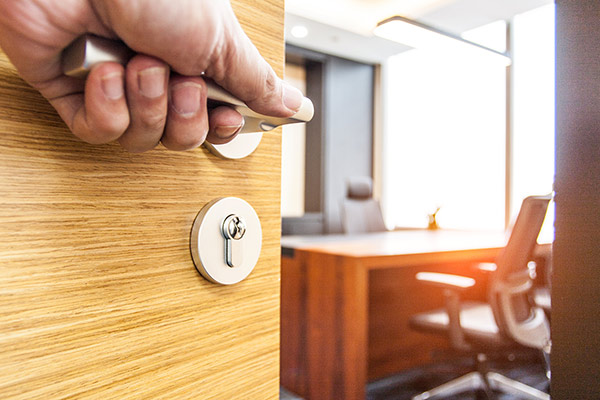
With two young kids, do you still host any events ever or too hard?
Absolutely. We host bigger and more events than we’ve ever hosted. We host events in our house for political candidates we support nonprofits. We had a nonprofit fundraiser.
Let’s share it. What’s the nonprofit? We like hearing about nonprofits.
At the Table support kids in foster care with educational resources, specifically tutoring. It’s a great cause. It was years ago. He’s helping out hundreds of students with tutoring and support. We hosted a fundraiser at my house.
I hope someday, I’ll get an invite but maybe next time.
We’d love to have you. Something super simple. We had a Passover Seder. We kept it lowkey but we invited other parents and families from our kids’ class. If they didn’t have anywhere else to go, they could come to our house.
You were a Meetup organizer at one point in time, which is why you’re such an event and community expert. According to what you said, you’re possible into over 200 different Meetup events. What was the group that you had organized? Let’s start with that.
When I was in college prior to starting General Assembly, I was a game developer. I started a game developer’s Meetup group here in New York for other game developers because there was nowhere for people who were building games to get together and talk about building games.
What happened? What was your biggest event? Did you have 10 or 20 people ever come to an event or even more than that?
We got well into the hundreds. We would do them in a gallery bar on the Lower East Side every month. We’d have six developers come and demo their games. In the gallery bar, they had a big screen. People could throw up their games and be like, “Here’s a game I’m building.”
It’s so much fun. Did people play games with each other at the event or after the event or was it more educational to learn about?
They started doing that later. When General Assembly took off, I handed the group over to someone else and they started more playtesting.
You’ve also been to hundreds, which is more than I’ve been to as a CEO Meetup. I’ve been to many. I don’t know if hundreds are the number. I’m going to a Zumba Meetup event and see how that goes. Tell me about some of the events that you’ve been to besides the gaming one that you were an organizer of.
Back in 2008, 2009 and 2010, around that time, we were starting General Assembly. Every week, I would go on to Meetup. It was the place to go to find what tech events are happening. Where can we go talk about what we’re doing and meet new startups, interesting founders and engineers? From those years, I was probably going to a couple a week.
You did it for recruiting reasons or help to recruit people.
Recruiting reasons and salesforce, more evangelizing General Assembly. We’re getting the brand out there.
Any advice or suggestions you would give to our audience around Meetup specifically before we go into rapid-fire questions? You went to many but what should they do to find the right one? Any advice you’d like to give?
I would encourage people to go to events and then talk to people about what are the other good events they go to. If you go to an event, you’re probably going to meet a lot of other people who also go to other events and may have been doing it for longer. I’ve found that that is the best way to discover new events and what’s going on in a city. You go to three events and at each event, you ask three people what else are they going to. You’ll probably find the right venues and forums for what you want if it exists. If it doesn’t, you should start it.
Brad, it’s good advice because a lot of people don’t realize it. Let’s say they go to tech Meetup events. They’re like, “Meetup is a tech platform you can go to.” No, there are hiking and book clubs. People go to book clubs and they realize, “I could go to these other types.” There’s such a big plethora. People don’t necessarily realize the gamut of different types. Even within gaming, there are thousands of different gaming groups to find. Thank you. Great advice. Here we go, rapid-fire questions with rapid-fire answers. The first time you saw yourself as a leader, Brad?
Running my game development studio in college in 2006. I didn’t know what I was doing but I saw myself as a leader or something.
If you could access a time machine, go anywhere in the world anytime, where are you going and when?
I’m super happy with the present. I love where we are. We’re in a great time. People over-glorify the past. The future will bring wonderful things but I’m happy with where we are right here.
We’ve had over 60 episodes so far and no one has ever said right here, right now.
We got to live in the present.
What’s something on your bucket list that you could share?
I want to do a Cannonball Run.
Is that running with bulls? Is running with Cannons? I’m sure it’s something good.
It is an illegal race of how quickly can you drive without stopping from New York to Los Angeles. They set the first new record of Cannonball in 2020 during the COVID pandemic.
What’s the record?
It’s something like 28 hours to drive from New York to LA. People strategize what routes to take. When to do X and Y. They pair up so someone is always driving and someone is sleeping.
What’s keeping you from doing it? When is the next one?
I don’t know. We have to have another global pandemic or someone that drives everyone off the streets. People do believe that the 2020 record may never be broken because there was no traffic in March 2020. Some very not risk-averse people decided to jump on that. The first thing they thought of when the COVID pandemic was happening is like, “Now is the time to set the new Cannonball record.”
That is a creative person, someone I would love to have at an event one day because that person thinks differently. Last question. You’ve done so much and helped hundreds of thousands of people through the courses, Common and the events that you’ve had. It’s amazing. How do you most want to be remembered?
As someone who brings people together and around great experiences is core to my identity and who I am. Someone who looks back and says, “I went to a lot of great experiences. I did a lot of fun things. I met a lot of great people and hopefully, Brad was at the center of bringing that together.”
It’s not just about the experience. It’s about those people that you meet in those experiences and hopefully how you could continue to maintain relationships with them over time. Brad, it is a pleasure. I’m so glad that we were connected and had the opportunity to discuss this. There are many ways in which hopefully meet up and Common can work together in the future. I wanted to thank you so much for being part of the show.
Thank you so much for having me on. This was great.
—
Thanks for reading the episode with Brad Hargreaves. If you think that was a common episode, it was not but on the bump, lots of great conversation on career transitions and the importance of being willing to take a step back in your career to take 2, 3 and 4 steps forward. Also, his feedback around community building. Keep it simple. Don’t overthink it. Open your door for an event advocating for community change as part of a community. All those are wonderful lessons for every one of us to consider. If you enjoy this episode, subscribe and leave a review. Remember, let’s keep connected because life is better together.
Important Links
Last modified on June 7, 2023

